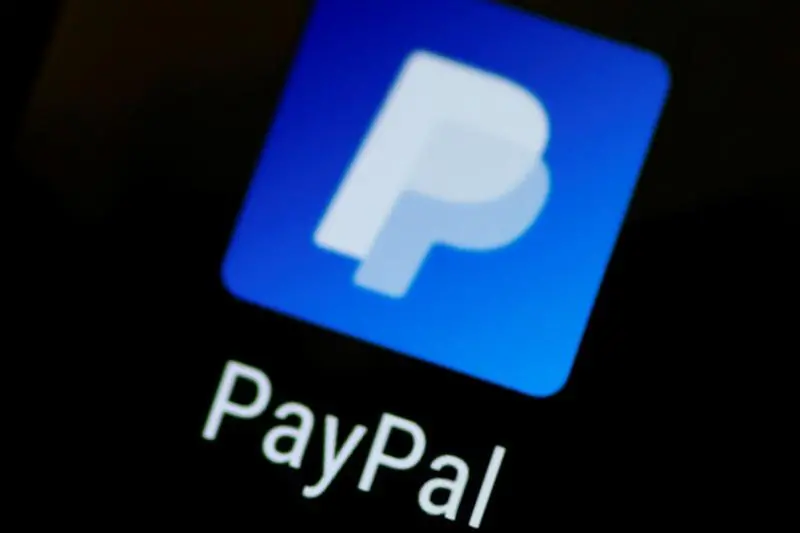PHOTO
(The author is a Reuters Breakingviews columnist. The opinions expressed are her own.)
WASHINGTON (Reuters Breakingviews) - Elon Musk can be a vulnerable person. That’s one of the surprising insights from a new book about the founding of PayPal and the network of entrepreneurs and venture capital investors it spawned. It’s a dramatic business story about the payments company’s rise. But it’s also a human tale about Musk, Peter Thiel, and Max Levchin before they went on to greater fame and fortune.
In “The Founders: the Story of PayPal and the Entrepreneurs Who Shaped Silicon Valley”, Jimmy Soni captures the heady days of the dot-com bubble in 1999, when it seemed any twentysomething could raise money for a startup. Musk had set up an online bank called X.com while Thiel and Levchin started what would become PayPal. That firm’s first office was in a building’s closet.
While entrepreneurs are often lauded for their single-minded pursuit of an idea, the book demonstrates that adaptability is just as important. Levchin was set on the firm’s original purpose of sending money using Palm Pilots, the popular handheld device at that time. Musk had a vision of revolutionizing traditional banking. But the product that customers wanted was an easy payments service. Both startups found demand at online auction site eBay. X.com and PayPal became fierce competitors, one-upping each other on referral payments and coding feats. Instead of fighting to the death, they decided to merge.
Thiel’s financial acumen shone through even then. He pushed the company to quickly raise $100 million, a figure that some staff found disappointingly small. Days later, the stock market started its downward spiral. With cash in the bank, PayPal was able to file to go public in 2001 when fewer than 100 U.S. companies joined the stock market.
After countless tales of tech bros behaving badly, the PayPal story shows a more attractive side of Silicon Valley culture. Its founders were nerds in work and in play, creating a meritocracy in which they trusted employees to do big things and were surprisingly forgiving when they made big mistakes. Levchin and Thiel spent hours trying to outdo each other on brain teasers.
EBay looms large throughout the book. PayPal was so dependent on the site that executives continuously feared being cut off. It led to fierce battles, several deal dalliances and a back-and-forth relationship that continues to this day. The auction site bought PayPal for $1.5 billion in 2002, spun it off in 2015, and now has shifted most of its payments processing away from its former subsidiary. Meanwhile the $120 billion PayPal is more than three times bigger than its former parent.
While PayPal’s founders were intense, winner-take-all types, they also had surprisingly softer sides. Thiel, who became an early investor in Facebook, had an unofficial rule of not firing employees because he considered it akin to war, which he said was bad. It’s an unexpected conciliatory edict from someone who would later force gossip site Gawker into bankruptcy and back Donald Trump’s presidential bid. Meanwhile, X.com was noted for its diverse staff. If a worker didn’t cut it, “Elon always let them go with dignity and grace”, one female employee recalls. Now Tesla TSLA.O is facing lawsuits for sexual harassment and discrimination.
Musk was one of several people who served as PayPal’s chief executive. Arguments about technology, the company’s name and overall direction led to his ouster while he was abroad. Yet Musk was gracious in his farewell note to employees and praised Thiel, who helped orchestrate the coup, and would later become an investor in SpaceX, Musk’s rocket startup.
It was his second experience of being pushed out of a company and according to Soni this “pained him.” It helps explain why Musk ensured that his later ventures had boards packed with allies including his brother Kimbal, who is a director of both Tesla and SpaceX.
“The Founders” also gives due recognition to Levchin, who is often overshadowed by his more controversial colleagues. He helped create one of the first commercial applications of what’s known as CAPTCHA, which helps determine whether a visitor to a website is human. He was also an early investor in review website Yelp and is now chief executive of Affirm, the $11 billion buy-now-pay-later lender.
The PayPal mafia, as alumni are often called, usually refers to the men. “The Founders” refreshingly also highlights the women who were integral to the company. Amy Rowe Klement, who became a PayPal products executive, is credited with translating engineering vision into practical consumer use cases.
The author had impressive access to the key players, including Musk, Thiel and Levchin, along with those who were closest to them in those early years. It would’ve been enlightening to hear more from them about how they applied their PayPal experiences. Still, the book is rich enough that readers can infer the lessons the founders learned in a more innocent time.
CONTEXT NEWS
- “The Founders: The Story of PayPal and the Entrepreneurs Who Shaped Silicon Valley” by Jimmy Soni is due to be published by Simon & Schuster on Feb. 22.
(The author is a Reuters Breakingviews columnist. The opinions expressed are her own.)
(Editing by Peter Thal Larsen and Karen Kwok) ((For previous columns by the author, Reuters customers can click on CHON/ SIGN UP FOR BREAKINGVIEWS EMAIL ALERTS https://bit.ly/BVsubscribe | gina.chon@thomsonreuters.com; Reuters Messaging: gina.chon.thomsonreuters.com@reuters.net))





















